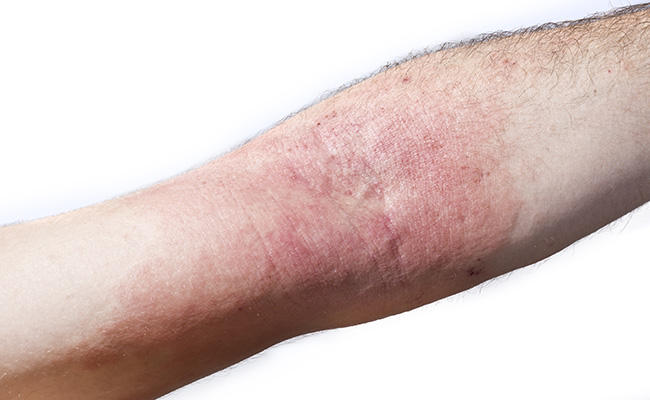Eczema is a skin disorder that millions of people experience. This can be incredibly irritating to the sufferer and can leave unwanted or permanent marks on the skin. It can hit any gender, age and ethnicity. Though, even being incredibly popular there are still a lot of misconception regarding it. It is important to learn and understand what eczema really is to properly diagnose and treat it. To make it easier, we’ve compiled the top eczema myths and share with you the truth about each one.
Eczema is Similar to Acne
Eczema can at times appear like acne, but these conditions are completely different from one another. The causes for each skin disorder is different and will require different medication. You cannot use the same medication on your acne for eczema. This can further complicate your condition and leave visible marks. Though, there is some medication that can complicate eczema and cause acne. It is hard to determine these medications. Talk to your doctor about medications to avoid and which ones will work best for your problem.
Emotional Disorders Cause Eczema
There has been thorough research regarding eczemas relation to emotional disorders. There is no proof that it can cause eczema, but emotional factors such as stress, anxiety, anger and so on can cause eczema to worsen. There are different ways to handle emotional stress. Every time your eczema starts to flare up due to frustration, stress or sadness consider using calming methods such as yoga, spending the whole day relaxing and avoiding stressful environments. See which emotional factors can trigger your skin disorder and find ways to reduce them.
It Is Contagious
Eczema is not something that you can catch. It is not a viral infection or bacteria that can be spread to other people. Touching someone who has it will not cause you to have eczema. Sharing the same spoon or sleeping in the same room will not cause you to catch the disease. So, you do not have to worry about sitting with someone who has it.
Eczema and Swimming Don’t Mix
Most people with eczema can go swimming as much as they want. Though, people that suffer from severe eczema will find it difficult to swim. Especially in swimming pools that contain strong chemicals and sea water. The salt and chemical in the water can aggravate the eczema causing it to become worse. So, it is a better option for people that have severe eczema to avoid bathing in these areas or opt for pools that do not contain strong chemicals. For people that do not have severe eczema make sure to wash before and after you swim, apply ample amounts of sun block and apply moisturizer every few hours.
Eczema Is Caused by Poor Hygiene
This is completely false. Eczema has nothing to do with hygiene. It is a disease that can be caused by genes, pollution, your immune system and environmental factors. If you acquire red patched or irritation in your skin due to poor hygiene, this is not eczema. However, not bathing enough or bathing too much can irritate it. It is important to make sure that the skin in hydrated and to wash using gentle products. Ones that won’t strip away any natural moisture on the skin.
It Will Leave Marks
Most of the time eczema does not leave any marks or scarring on the skin. Though, in some severe cases it can cause discoloration. Eczema may appear incredibly red and inflamed in the first few days. With treatment and medication, the inflammation will start to cease and the skin will go back to normal. Nonetheless, there are certain treatments for eczema that can cause stretch mark like marks and thinning of the skin. Talk to your doctor if you notice any unusual side effects from your medication or treatment to avoid marks.
Diet Has Nothing to Do with Eczema
There are a lot of factors that can affect eczema. One of the biggest factors is your diet. Being an inflammatory condition, it can be triggered by certain foods. Refined sugars and dairy can cause it to worsen. During eczema flare ups avoid acidic foods and excessive amounts of meat to improve healing.
Some of eczema symptoms are dry and inflamed skin, blisters, redness and tenderness of the skin. Sufferers experience flaky and itchy skin due to the skin’s inability to retain moisture. Areas that are commonly affected are the knees, ankles, wrist, neck, back and back of the knees. Eczema can come in different severity. Some people may experience mild ones that can be easily treated with over the counter medication and others may require prescription drugs. These myths above are some of the most common eczema myths. We hope that finding out the truth about them help you separate fact from myth.












